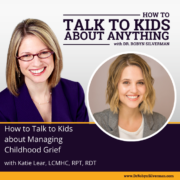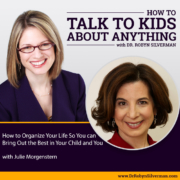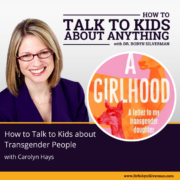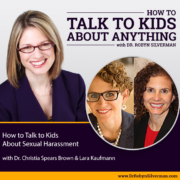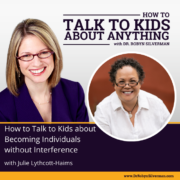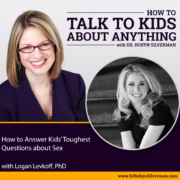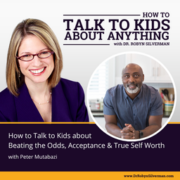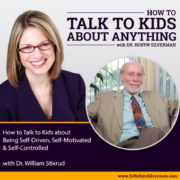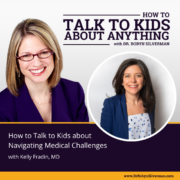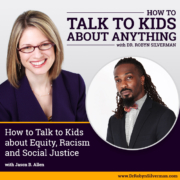How to Talk to Kids about Managing Childhood Grief with Katie Lear, LCMHC, RDT, RPT
Childhood is supposed to be filled with good times and laughs—but of course, some children may experience a significant loss during their childhood or adolescence. It’s actually more common than you might think. According to the Childhood Bereavement Estimation Model, as of 2021, one in 14 American children will experience the death of a parent or sibling before the age of 18. Still, it’s not easy to talk about grief with adults, let alone kids—but as the key adults in our children’s lives, we need to be able to step in and navigate ethe thoughts and feelings that they are experiencing as they cope with their loss. They likely will have many questions when a grandparents, parent, sibling or other close family member or friend dies. They might wonder if they are at fault, if they are safe and who will make their grilled cheese sandwich and take them to soccer if the person who passed away was the one who did those things for them. When we shut down, don’t talk about grief and death with kids or make the mistake of assuming if they aren’t talking about it, they must be fine, kids can wind up filling in their questions with their own answers based on misunderstandings and incorrect information. We need to help them get the conversation going through a variety of techniques that allows them (and also us!) to manage grief in productive ways. We’ve discussed talking about death and grief with Joe Primo, in the past, and we’ve talked about suicide with Dr. Dan Reidenberg and Dr. Jonathan Singer—and now we will discuss grief through a new lens with Katie Lear who uses child-friendly activities to comfort kids and help them to overcome sadness, fear and loss.

